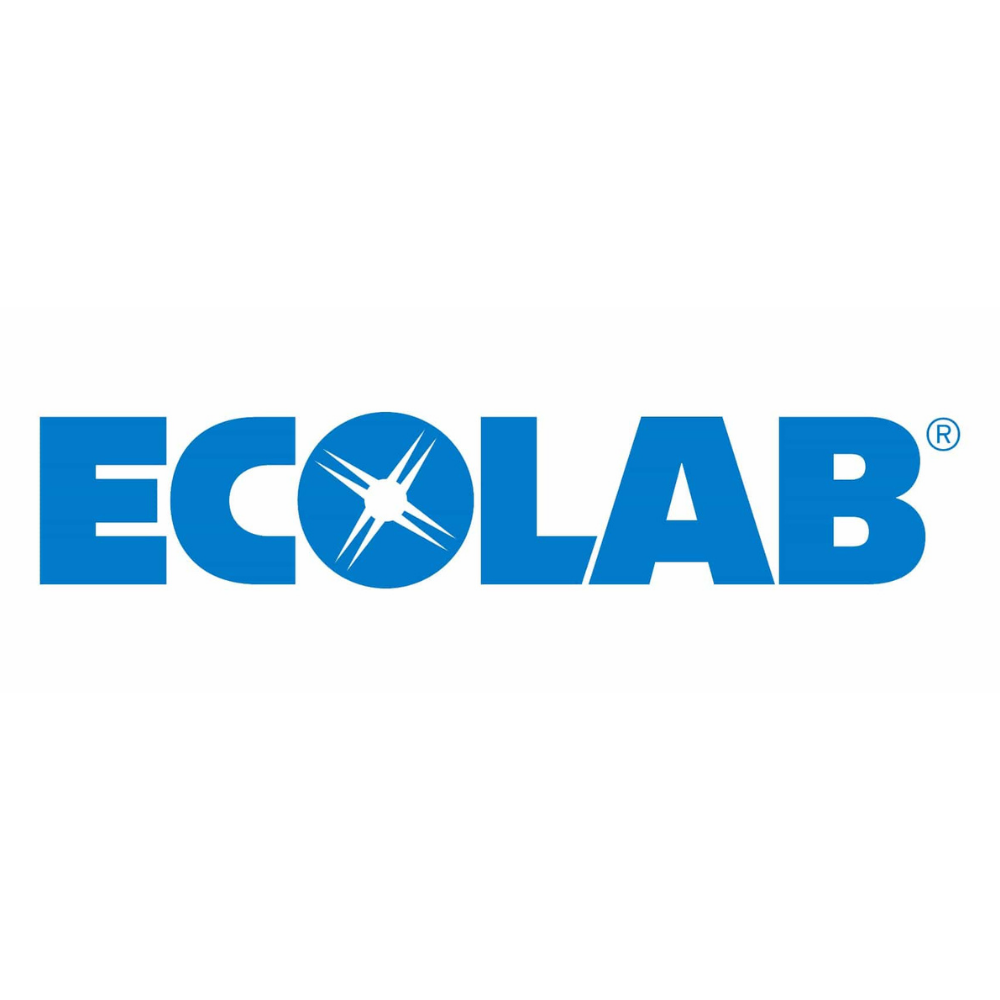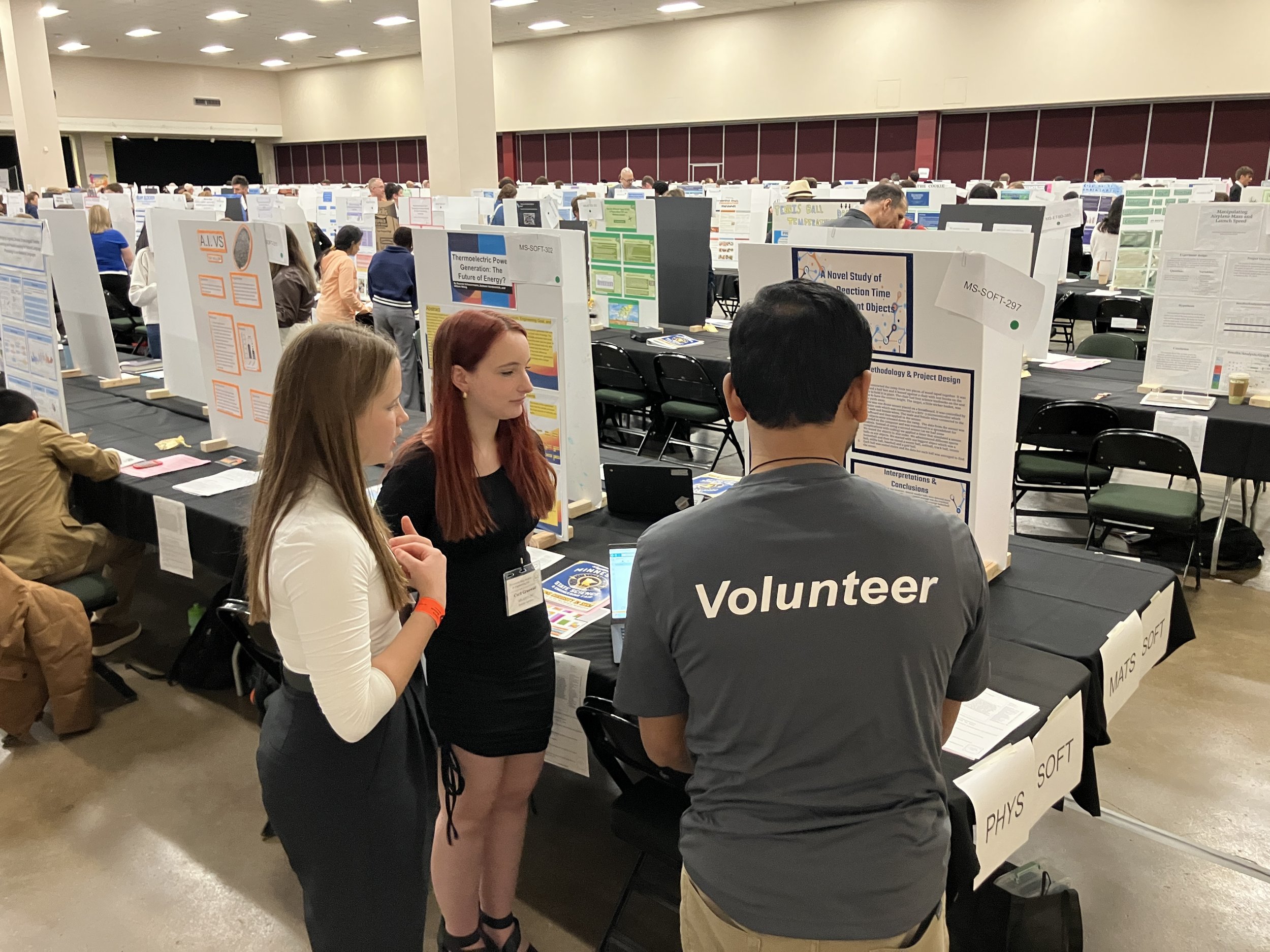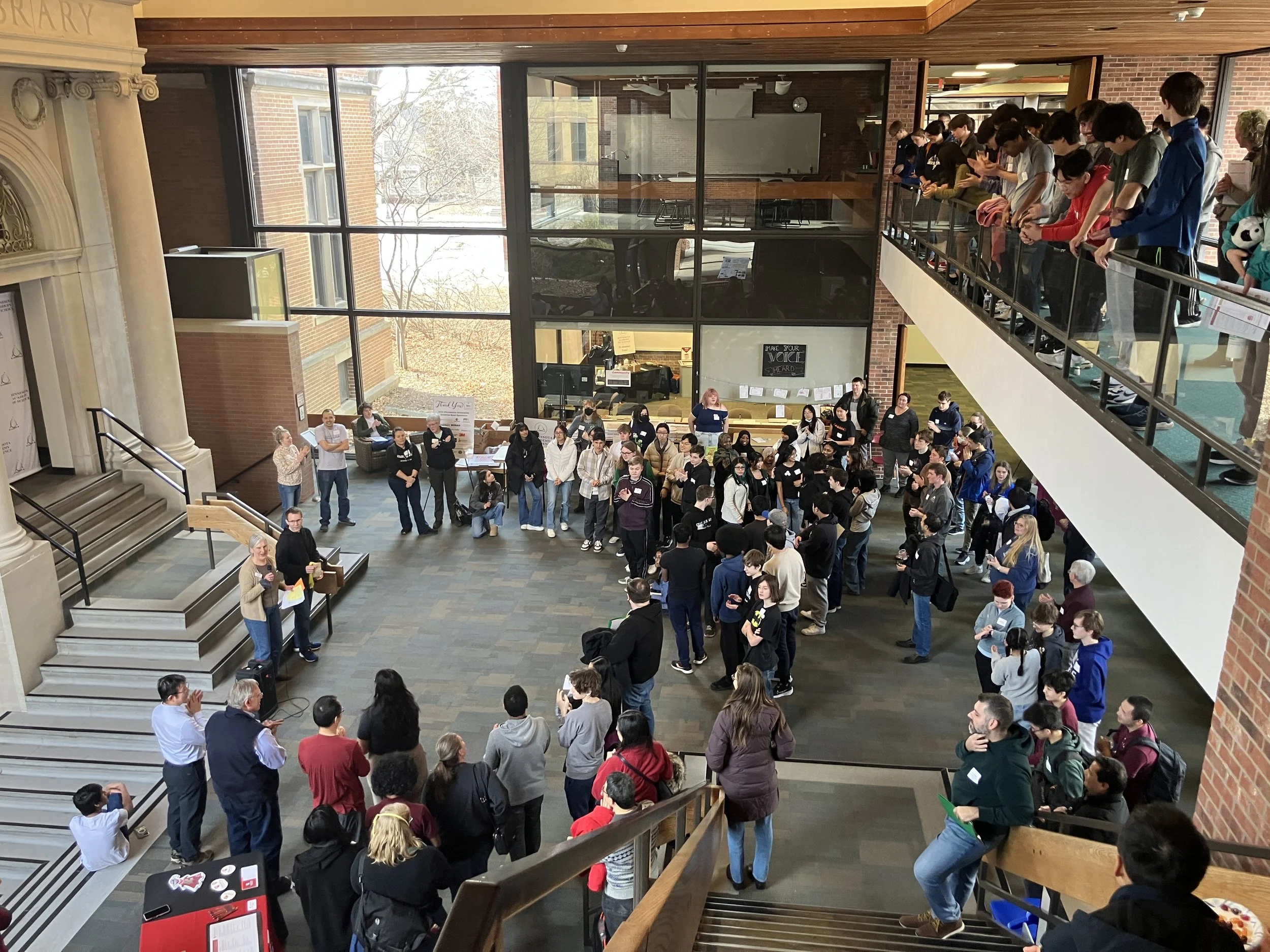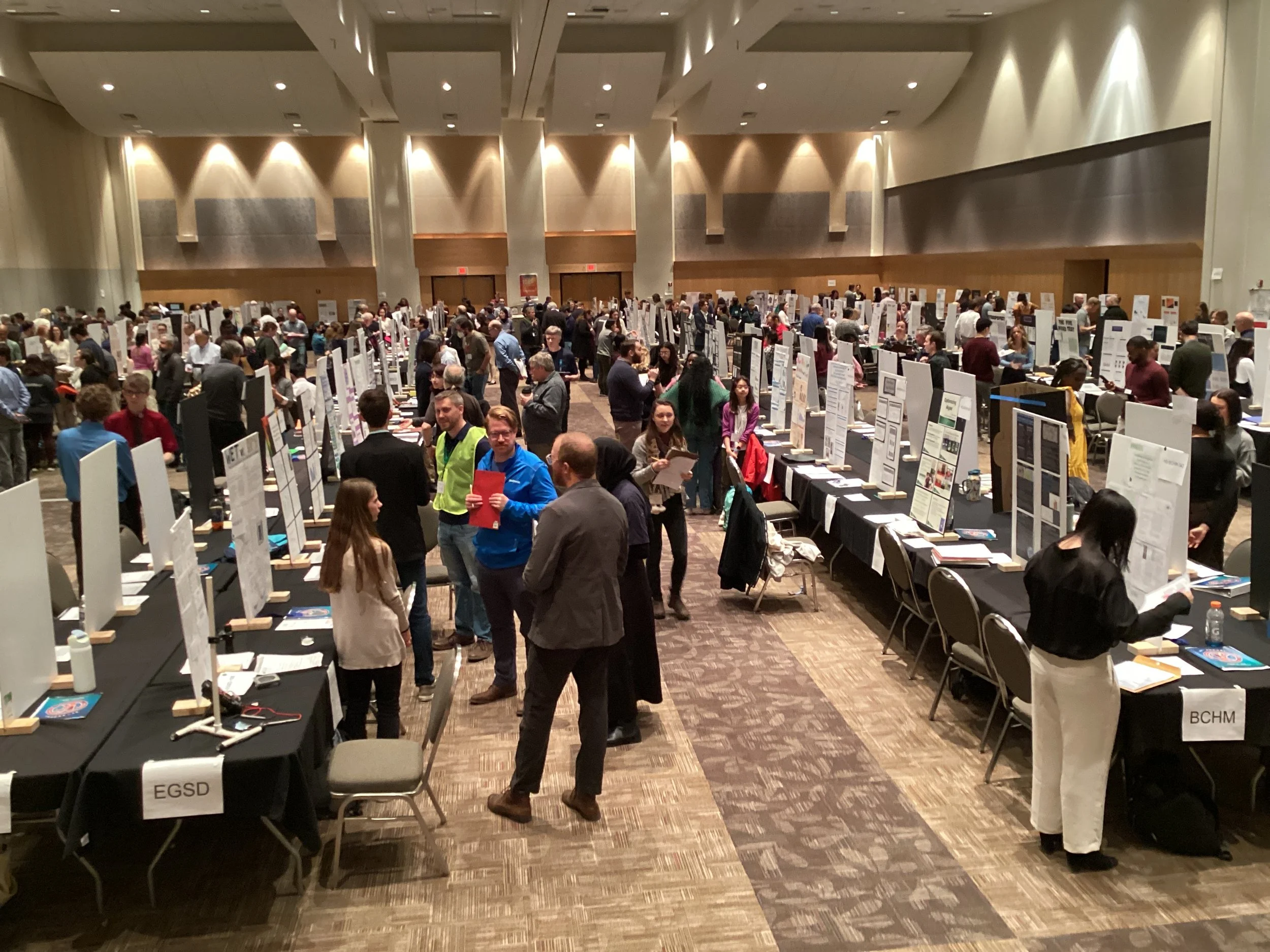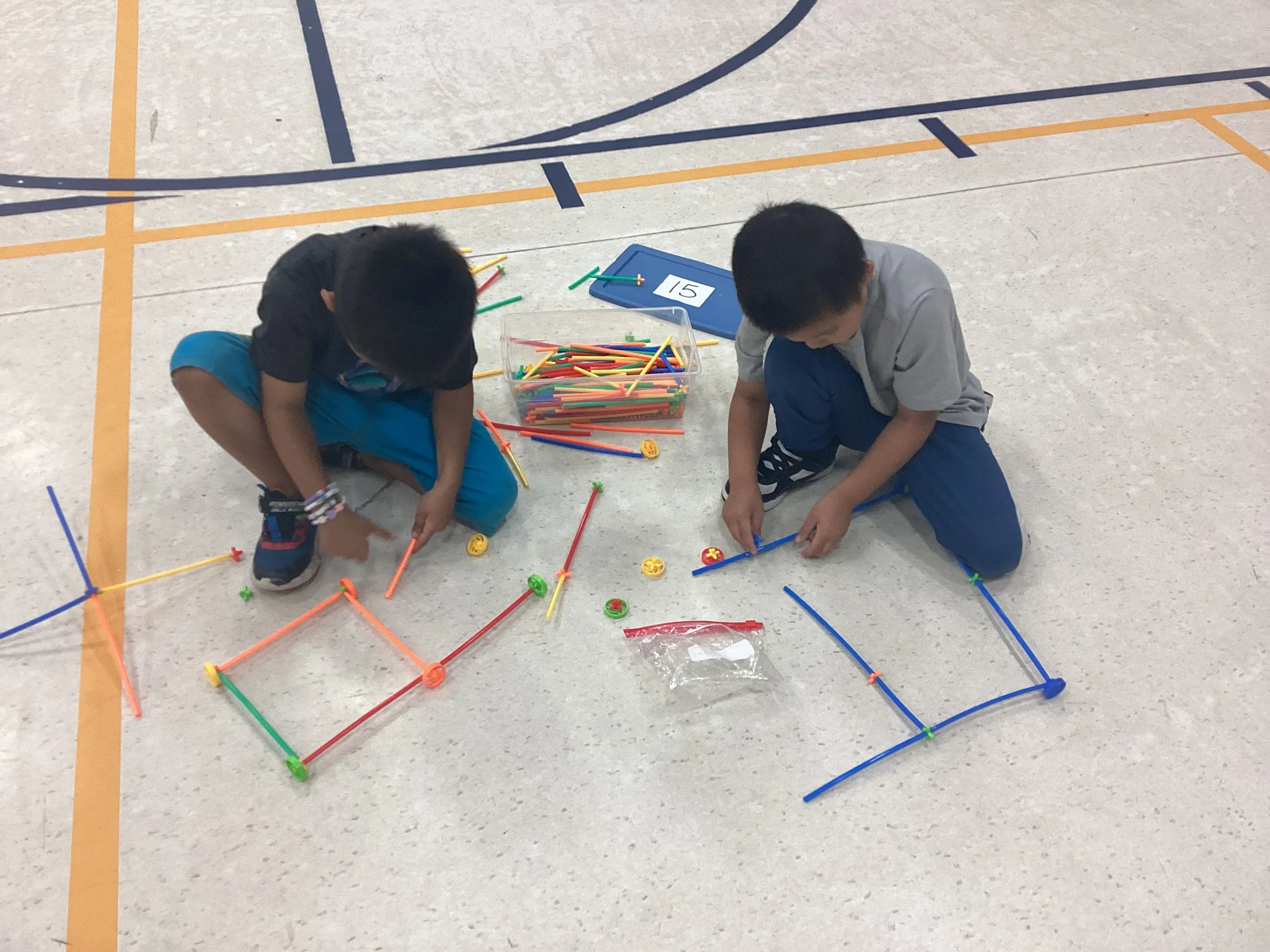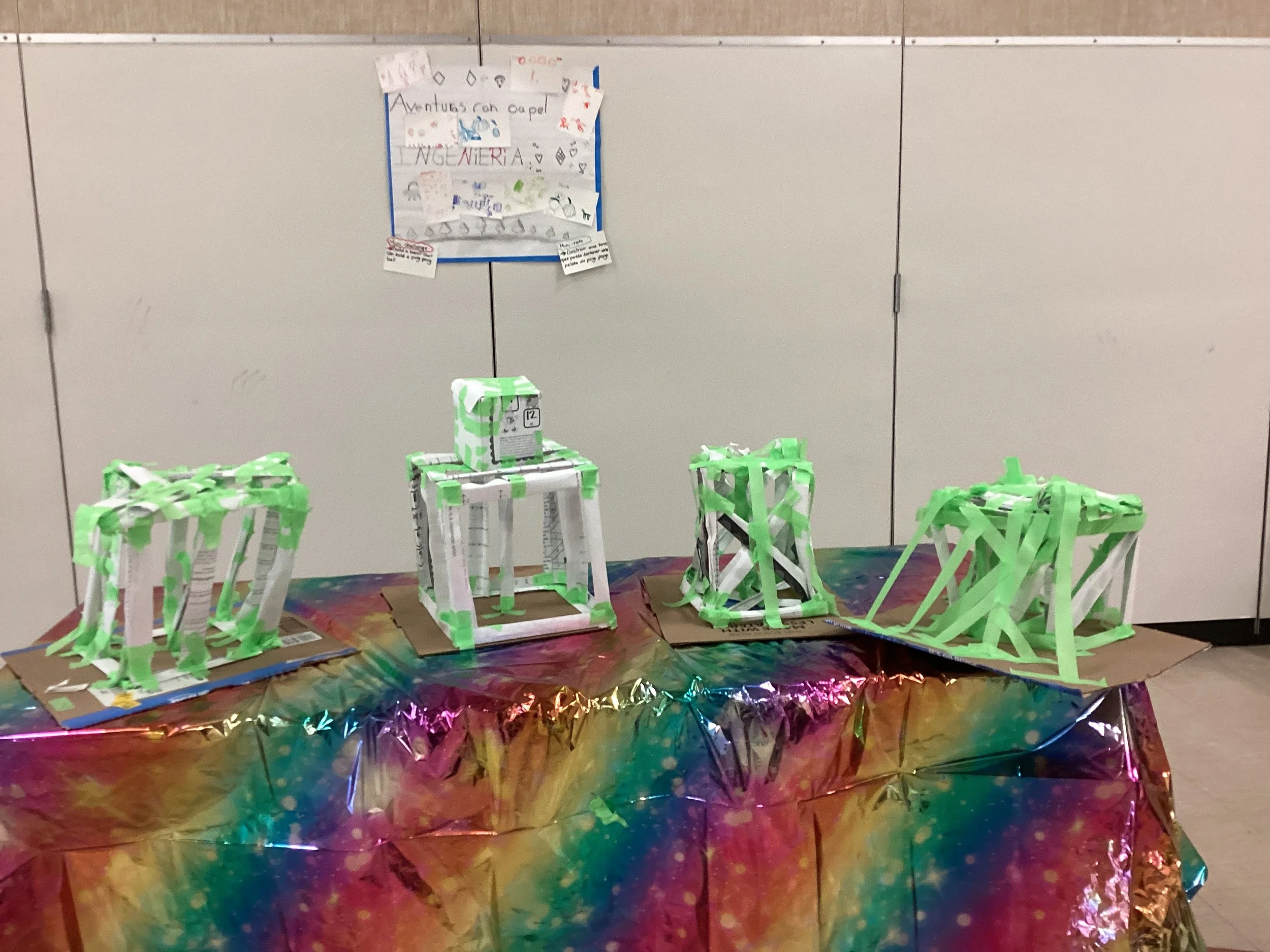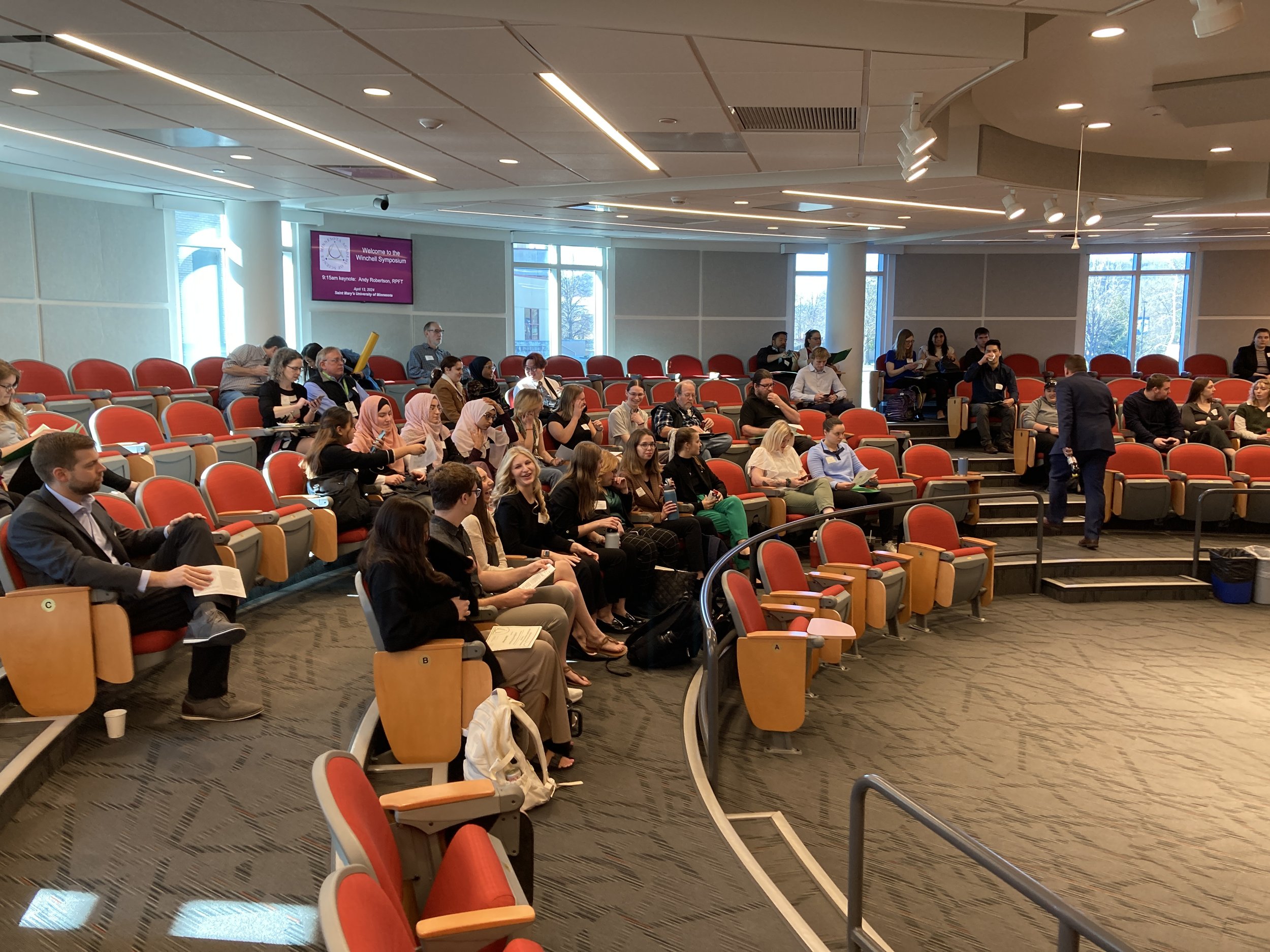by Linnea C., 2023 Minnesota Junior Academy of Science officer
Early preparation for a career in science, technology, engineering or mathematics (STEM)
As I prepare to start my first year of college with intentions to pursue science research, I’ve been spending a lot of time thinking about networking, how to find lab-based research opportunities, and career paths. While this can be overwhelming, I feel incredibly well prepared to enter the research world thanks to my experiences with science fair.
Some of my algae flasks lined up for a picture. You can see the ones that the ethanol destroyed because of the light color.
Designing and conducting my own experiment introduced me to real-world science instead of high school labs with per-determined methods, results, and explanations. My experiment did not actually work (LONG story short: my results were confounded when the ethanol I used to dissolve the chemical I was studying killed all of my algae), so I was also introduced to the very real experience of failure. I’ve seen the confusing, overwhelming, frustrating, and monotonous sides of research, and I still know that this is the right path for me. However, I am extremely thankful that I understand what I’m getting myself into.
Because of my participation in science fair, I am also familiar with the entire research process, from selecting a research question to writing the final paper (and meeting deadlines to submit it). Learning how to do all of this for the first time was pretty stressful, and I was very lucky to have my high school and my parents to support me. I am incredibly glad to have gotten the bulk of the learning curve out of the way early on.
Thanks to science fair, when I start college, I can focus on expanding and improving my research skills instead of starting from scratch.
2. Finding, emailing, and follow-up emailing mentors
It can be a bit disheartening to spend far too much time crafting the perfect email only to receive the shortest reply possible. However, getting a reply at all from super-busy professors is a major accomplishment on its own!
After I decided on a research topic, my very first step was to find a mentor. I learned the invaluable skill of identifying experts and stalking them via Google Scholar, ResearchGate, and Linkedin.
I then had to email these experts and ask them to volunteer their time and expertise. As someone who had only ever emailed my parents and my teachers, this was a very daunting task.
I am still not a big fan of sending emails (read: I hate emailing), but I now know how to write and reply to many different types of emails and understand the importance of follow-up emailing when you don’t get an immediate response.
3. Fending off imposter syndrome
My first time visiting the lab that I worked in! It was very hard for me to believe that I was going to get to use all of the very cool and fancy equipment.
Pretty much everyone suffers from imposter syndrome at some point in their career, but I think that it can be much harder to avoid as a young non-binary person in STEM (and for other under-represented groups, as well).
I felt completely in over my head when I was conducting my science fair research--whenever I thought too hard about what I was doing, it felt like I had climbed hundreds of feet in the air and had just looked down for the first time. But, I got through it and received helpful and supportive feedback from the science fair community: judges, peers, organizers, etc.
As I move on to the next stages of my education and career, I still catch those feelings of imposter syndrome creeping up all the time. However, I now have my science fair experience behind me as tangible proof for my mind that I belong in STEM. I think that anyone’s “first” experience in a field can serve the same purpose, but it is very nice to already have this confidence boost before entering more professional circles.
4. Finding a challenge & testing my limits
Hour eight of counting cell density of my algae samples. I had so many to get through that I had to bring the samples and microscope home with me to keep working.
I know that it’s not everyone’s experience, but I found science classes pretty easy in high school. But conducting my own research and writing my paper was one of two times in high school that I felt like I was really stretching myself to understand what was happening (the other was my organic chemistry elective). Not coincidentally, the research class I took to work on my science fair project and organic chemistry were my two favorite classes.
The research process wasn’t always the most fun, and was honestly brutal at times, but I absolutely loved the challenge it posed. Even when I was exhausted and fed up with my project, I would remember that I was bringing new knowledge into the world about a topic that I’m passionate about, and it would all seem worth it.
Additionally, adding a research project to my already packed schedule allowed me to learn how much I could take on at once so I know where to set limits in the future, which is SO IMPORTANT!!!
5. Connections from the actual event
The Minnesota delegation at the 2022 National JSHS in Albuquerque.
So far, I’ve only talked about the research process -- I haven’t even gotten to the actual fairs! The state science fair was online when I competed in 2022, but I was fortunate enough to attend the National Junior Science Humanities Symposium competition in-person to get the full science fair experience.
Getting to talk to judges and other student researchers was absolutely amazing. I seriously cannot describe the impact of meeting so many people who understood the highs and lows of research, and the sense of community it brought. If I didn’t already feel like the long and arduous research and competition process was worth it, getting to experience in-person science fair events would definitely have convinced me.
To learn more about STEM opportunities for high school students, check out our STEM Programs for Students resource page.









